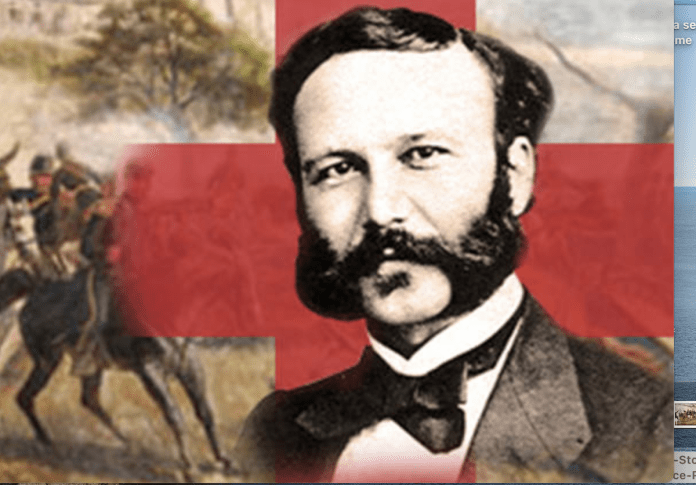Let’s retrace, together, the most important events and characters that marked the date of June 15th.
It happened that:
1864 (158 years ago): the Italian Red Cross is founded as the “Milanese Committee of the Italian Association for the relief of the wounded and war sick”. Since its inception, the Red Cross has been at the forefront of any crisis, calamity, emergency. In every historical moment, this action has helped to spread the cultural revolution that Henry Dunant, founding father of the Red Cross Movement carried out at the end of the 19th century and which sowed the seed of what is now considered modern humanitarianism. The Italian Association of the Red Cross has as its objectives health and social assistance to the population both in times of peace and in times of conflict. It represents a force of 120 million volunteers, animated by the same vocation and the same generosity. It constitutes the most extraordinary solidarity chain in the world. The idea of the Red Cross begins to take shape in the mind of its founder when, on June 24, 1859, he finds himself witnessing the bloody Battle of Solferino, one of the most tragic episodes in the history of Italian independence. Dunant is shocked by the impressive number of wounded and dead, but above all by the fact that they are left to fend for themselves: more than 40,000 people lie, in fact, on the battlefield. Powerless in the face of these scenes of pain and despair, Dunant looks in vain for doctors, surgeons and nurses who can alleviate the suffering of so many men. Aware, therefore, that the only thing to do is to resort to the good will of the inhabitants of the country, Dunant himself improvises himself as a nurse, gathers men and women, procures water, broth, linen and bandages, returns to the battlefields to collect the greatest number of injured. Despite everything, he is well aware of the insufficiency of aid in relation to needs. The CRI, today, is present in natural or man-made catastrophic events in our country or on the international scene, in application of the motto “First to arrive, last to leave”.
1959 (63 years ago): in Italy, the first Consolidated Law on the road is approved, composed of 147 articles, plus 607 of the annexed regulation, to which another 607 belonging to the annexed regulation were added. It is a regulatory document that governs the circulation on the road of: vehicles, pedestrians and animals. It was approved at a particular historical moment, that is, when there was a strong need to regularize road traffic, given the considerable expansion of the motorization. Among the new rules proposed in the Consolidated Law, the most important required greater respect for pedestrians by all vehicle drivers; particular attention was paid, from a purely semantic point of view, to the chosen words, in fact, the reference “give precedence” to pedestrians passing on pedestrian crossings was eliminated, replaced with the imperative “stop”. Another important rule, referred to speed limits, but also the obligation of seat belts on “minicars” (once called “city-cars”).
Disappeared today:
2019 (3 years ago): dies, in Rome, Franco Zeffirelli director, screenwriter, set designer and politician. Born in Florence on February 12, 1923, he made his debut in cinema in 1947, playing the role of Filippo Garrone in Luigi Zampa’s “The Honorable Angelina” and assisting Visconti on the set of “La terra trema”. The first film he directed is “Camping”, from 1958. His literary transpositions remain famous in the cinema: from the romantic story of “Romeo and Juliet” in 1968, to a heartfelt biography of the poor man of Assisi, that is the “San Francesco “Of 1972, to” Hamlet “of 1990. His work is dominated by a romantic vein of accurate sensitivity both for the detail and for the definition of the characters. The 1977 Jesus of Nazareth of him remains memorable, which entered the history of cinema for the particularly human portrait of Christ, whose ethereal spirituality pervades the entire work. Finally, in the field of opera we cannot forget the historical productions, starting with the “Traviata” with Maria Callas. Franco Zeffirelli, who was openly homosexual, declared that he did not appreciate the “gay movement”, as for him “the homosexual is not someone who wags and wears makeup. It’s Greece, it’s Rome. It is a creative virility ”. One of his most beautiful phrases is the following: “The world has always been saved by those who looked ahead.”

